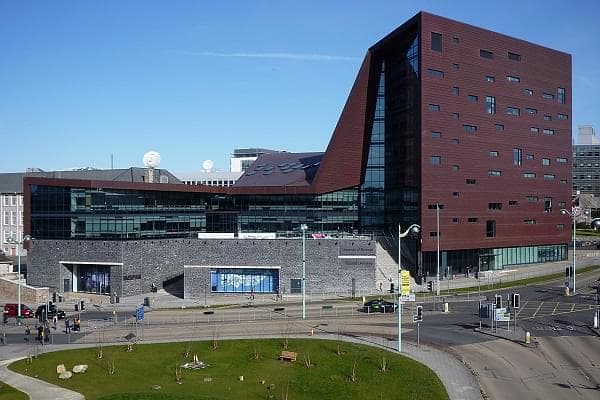Year 1
Based in a lively well-supported studio environment, the programme will develop skills in digital and urban design. This will be set within a critical framework to appraise the application of these technologies to urban contexts. There will be a close cooperation and link with industry, the public and the third sector and the focus of your work will be on real-world problems and scenarios.
Semester 1
Design Studio 1 (30 credits): Studio projects designed around students working to a series of briefs on projects within a ‘real world’ context. Group and individual work.
DAT Urban Dataplay (30 credits): Core theory and skills in digital technology and design. In the programme students will use a range of software and technologies such as Unity3D, online data, mobile phones, IoT sensors, streaming media, Ardunio, Lilypad, Raspberry Pi, Processing, projection mapping, 3 D fabrication etc to explore and innovate in the field of smart technologies, interfaces and IoT.
Semester 2
Design Studio 2 (30 credits): Studio projects designed around students working to a series of briefs on projects within a ‘real world’ context.
Futures Entrepreneurship (30 credits): Developing and understanding for entrepreneurship in design fields. Students will be expected to identify the exploitation and innovation potential of their work in a collaborative manner and explore how this can catalyse an entrepreneurial journey. The Module will also offer a programme of mentorship and networking with key practitioners and innovators. This module is run in conjunction with the Futures Entrepreneurship Centre, Faculty of Business.
Semester 3
Research project (60 credits): This module enables students to develop work from the design lab with a level of depth and breadth and addressing a real world issue. The research project allows students to demonstrate self-direction and originality in tackling and solving problems, to act entrepreneurially in planning and implementing a project working with a range of partners. The research project will enable students to move directly into their chosen area of work, whether this be research, employment, a startup or consultancy.
Core modules
Invisible Architecture (DAT701)
The module provides a foundation for the DAT programme introducing a variety of development tools, different models of 'space' and new digital 'architectures' to underpin the development of student's critical and practical approach to the use of online and offline networked technologies.
Design Lab I (SURF701)
Design Lab I is a creative space to develop ideas and responses as to how to design for smart urban futures. The Module applies urban design approaches to the integration of Big Data, Internet of Things, Physical Computing and AR/VR. Students will address briefs that invite them to design new forms of interaction with cities and digital technologies. They will work with a range of technologies to prototype design solutions that address real-world socio-spatial urban issues, opportunities and challenges. Design Lab adopts a co-design approach where students work with external partners from city planning, industry, tech startups, third sector and community groups on shared outcomes. Design Lab I outcomes will be digital prototyping and place-making projects that respond to the opportunities and needs of Digital Living, Transport, Health, Mobility, Governance and Sustainability in a holistic approach to smart urban futures.
Design Lab P (SURF703)
Design Lab P is a creative space to prototype and test how we design for smart urban futures. The Module applies urban design approaches to the integration of Big Data, Internet of Things, Physical Computing and AR/VR. Students will address briefs that invite them to test and implement new forms of interaction with cities and digital technologies. They will work with a range of technologies to prototype design solutions that address real-world socio-spatial urban issues, opportunities and challenges. Design Lab adopts a co-design approach where students work with external partners from city planning, industry, tech startups, third sector and community groups on shared outcomes. Design Lab P outcomes (which develop out of Design Lab I ideas) will be digital prototyping and place-making projects that respond to the opportunities and needs of Digital Living, Transport, Health, Mobility, Governance and Sustainability in a holistic approach to smart urban futures.
Futures Entrepreneurship (SURF704)
This Module is aimed at developing students entrepreneurial abilities by providing a programme of support for developing innovation in the emerging area of smart urban futures. Students will be expected to identify the exploitation and innovation potential of their work in a collaborative manner and explore how this can catalyse an entrepreneurial journey. The Module will also offer a programme of mentorship, guest contributions and networking with key practitioners and innovators. This Module is run in conjunction with the Futures Entrepreneurship Centre, Faculty of Business.
Research Project/Dissertation (SURF705)
This module enables students to develop work from the design lab with a level of depth and breadth and addressing a real world issue. The research project allows students to demonstrate self-direction and originality in tackling and solving problems, to act entrepreneurially in planning and implementing a project working with a range of partners. The research project will enable students to move directly into either their chosen area of work, whether this be research, employment, a startup or consultancy.
